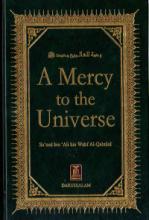The Prophet of Mercy Website
Muslim World League - Global Commission for Introducing the Messenger
Let us consider some aspects of the Islamic view of the relationship between men and women.
In its view of family, Islam recognizes the woman as the mother, the man as the father. It is a partnership in which the man and woman share equivalent responsibilities and are entitled to equivalent rights.
Islam enjoins Muslims to seek knowledge, and it makes no distinction between men and women. Fourteen centuries ago, Muhammad (peace and blessings be upon him) said: “The pursuit of knowledge is incumbent on every Muslim, male and female.” This means that women have the same right to education as men.
They are entitled to the freedom of expression as much as men are. Their opinions are taken into consideration and cannot be disregarded. It is reported in the Qur’an and history that women not only expressed their opinions freely but also argued and participated in serious discussions with the Prophet himself as well as with other Muslim leaders (Qur’an, 58:1-4; 60:10-12).
In the Prophet’s time, women participated in public life, especially in times of emergencies. Women used to accompany the Muslim armies engaged in battles to nurse the wounded, prepare supplies, and serve the warriors, and so on. They were not shut behind iron bars or considered worthless “creatures without souls”, as was supposed by certain Christian theologians of Medieval times.
Women participated in public life in the Prophet’s time
Islam grants women equal rights to buy, own, or sell property independently in their own right. Their life, their property, and their honor are as sacred as those of men. If they commit any offense, their penalty is neither more nor less than that of men in a similar case. If they are wronged or harmed, they get due compensation equal to what men in their position would get (Qur’an 2:178; 4:45 , 92-93).
Islam allows a share of inheritance to women as to men. Before Islam, women were not only deprived of that share but were themselves considered as property to be inherited by men. Whether a woman is a wife or a mother, a sister or a daughter, she receives a certain share of the deceased relative's property, a share that depends on her degree of relationship to the deceased and the number of heirs. This share is hers, and no one can take it away or disinherit her.
It should be noted here that the normal share for a woman is half of that of a man in a similar position. This may seem unfair at first glance, but consider the fact that Islam does not lay any financial burden on a woman such as it lays on a man. For example in a family, the duty of providing for the whole family is on the father (or husband).
It is never the responsibility of a woman to find the means to provide for herself or her children. Even if she is not a mother or wife, her maintenance is the duty of the men related to her according to the closeness of their relation to her. So a wife who inherits a share of her father’s wealth need not spend any money for her husband, for her children or for her own expenses. If she so chooses, she can donate her share to charity, for instance. That is her special privilege.
For this reason, no injustice is done to women here.
Islam also gives a woman the right to receive a dower, called mahr, at the time of marriage. This mahr is a gift of money or property that the bridegroom must give to the bride, not her family. This is a right of the woman, while she is entitled to complete provision and total maintenance by the husband. She does not have to work or share with her husband the family expenses, as mentioned before. She is free to retain, after marriage, whatever she possessed before it, and the husband has no right whatever to any of her belongings. As a daughter or sister, she is entitled to security and provision by the father and brother respectively.
By giving women their rights, Islam makes it clear that women are not slaves to men, nor do they need to play men’s roles in life to be recognized as humans or gain respect. In Islam, man and woman are intended to complement each other and to cooperate with, not compete against each other.
http://www.imanway.com/site/en
******






